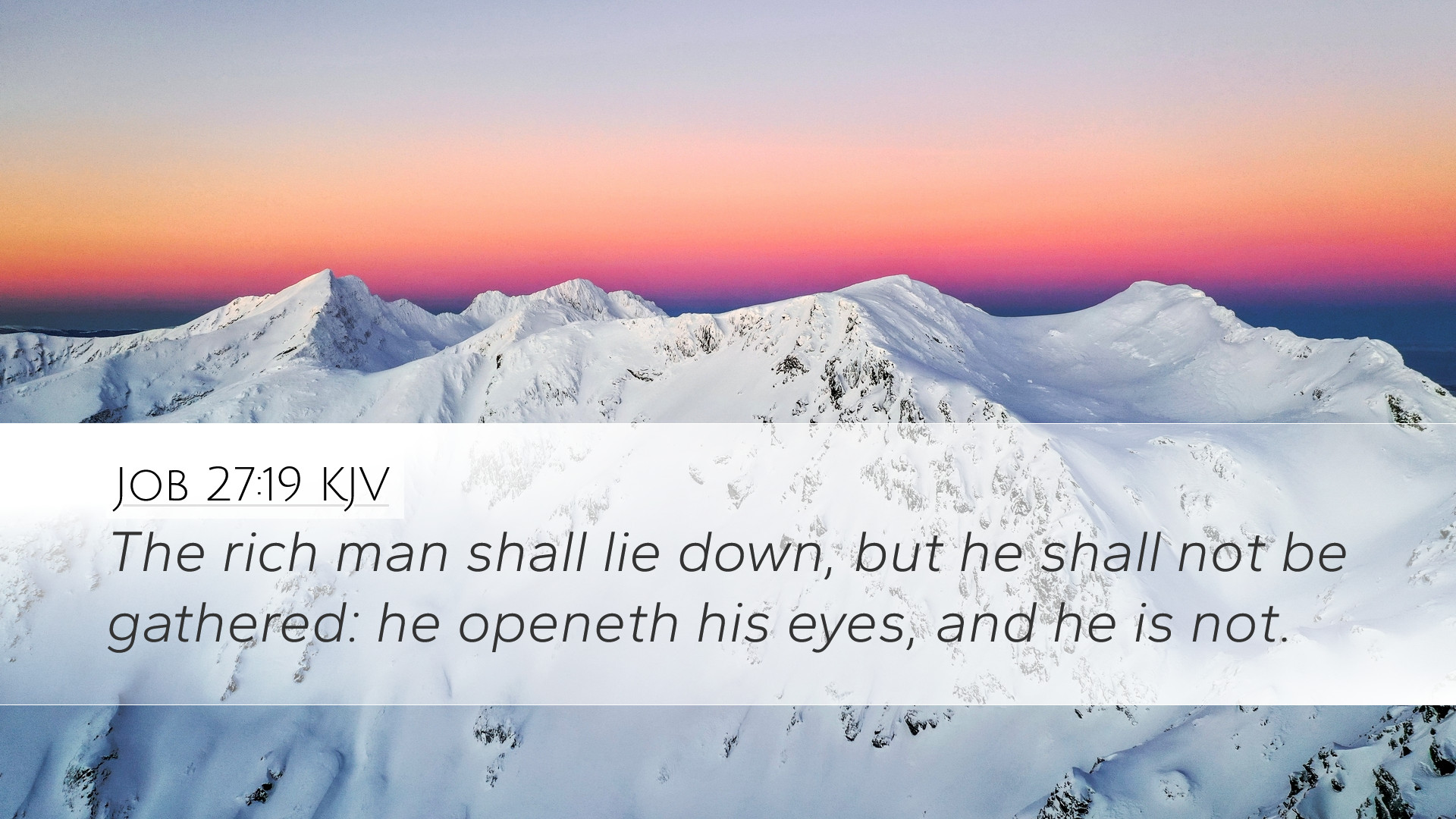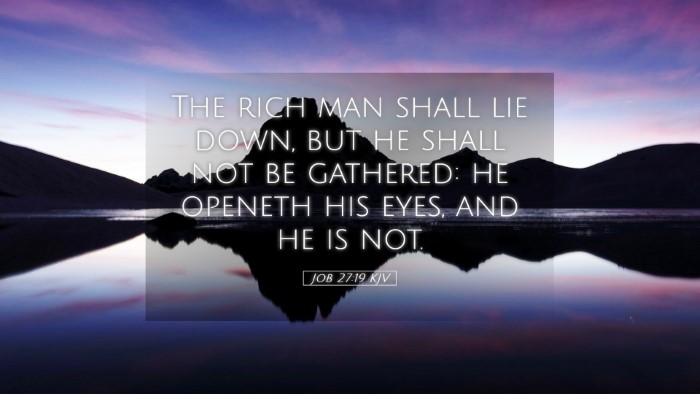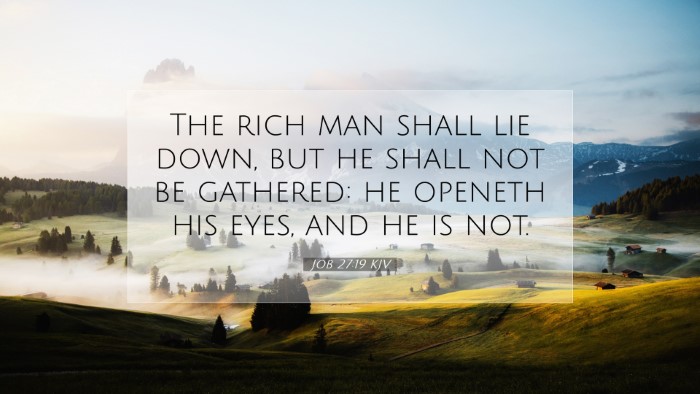Old Testament
Genesis Exodus Leviticus Numbers Deuteronomy Joshua Judges Ruth 1 Samuel 2 Samuel 1 Kings 2 Kings 1 Chronicles 2 Chronicles Ezra Nehemiah Esther Job Psalms Proverbs Ecclesiastes Song of Solomon Isaiah Jeremiah Lamentations Ezekiel Daniel Hosea Joel Amos Obadiah Jonah Micah Nahum Habakkuk Zephaniah Haggai Zechariah MalachiJob 27:19
Job 27:19 KJV
The rich man shall lie down, but he shall not be gathered: he openeth his eyes, and he is not.
Job 27:19 Bible Commentary
Commentary on Job 27:19
Text of Job 27:19 (ESV): "He dies in his full vigor, together with the peace and security of his household."
Introduction
The verse from Job 27:19 invites us to reflect on the outcomes of a life marked by pride and false righteousness. Job, amidst his trials, articulates a profound perspective on life, death, and the ultimate condition of the wicked. This commentary synthesizes insights from renowned public domain theologians including Matthew Henry, Albert Barnes, and Adam Clarke, to provide a meaningful exposition for pastors, students, and theologians.
Contextual Overview
In the structure of the Book of Job, chapters 27 to 31 encompass Job's defense of his integrity and the articulation of his disapproval of his friends' accusations. Job asserts the falsehood of the belief that suffering is always indicative of divine punishment for sin. This verse, therefore, sits within a broader dialogue on the nature of justice and the seeming prosperity of the wicked.
Interpretation of Job 27:19
1. Life and Death of the Wicked
Henry observes that the wicked may flourish for a time, experiencing lives filled with vigor and apparent peace. He emphasizes that their ending, though seemingly tranquil, cannot disguise the root of their unrighteousness. The contrast lies in how they conclude their existence—a point that Job stresses with emotional weight.
2. The Illusion of Security
Barnes notes that "peace and security" enjoyed in life can be deceptive. He argues that while the wicked may live without visible calamity, their security is superficial and lacks the true peace offered by God. Observing this disparity allows for profound theological reflections on the nature of worldly assurance versus divine assurance.
Theological Themes
1. The Justice of God
Clarke posits that God’s justice operates not only on an immediate basis but also transcends earthly life. Thus, although wicked individuals may appear to thrive, their ultimate fate will be addressed by divine judgment. This isolated analysis of Job’s plight addresses a larger biblical theme: that God's timing in administering justice does not conform to human expectations.
2. The Nature of True Prosperity
Henry offers insight into the concept of true prosperity. He suggests that real wealth comes from living righteously in communion with God, as opposed to the fleeting riches of the wicked. Consequently, Job’s assertion serves to spotlight the distinction between the prosperity of the unrighteous and the true blessing of a life anchored in integrity and holiness.
Reflection on Personal Integrity
As contemporary readers, we must grapple with the implications of this verse on personal integrity. Job’s unwavering commitment to his righteousness amidst suffering challenges individuals to reflect deeply on their spiritual standings and the nature of their pursuits. The importance of a life that aligns with divine commandments stands out through this meditation.
Exhortations for Pastoral Ministry
Pastors will find in Job 27:19 a profound basis for encouraging congregants grappling with the dilemma of suffering in the face of perceived injustice. Convincing narratives rooted in scripture that highlight the contrast between worldly success and spiritual vitality are crucial. The lesson drawn from this verse should inspire believers to seek God’s assurance transcending their immediate life circumstances.
Conclusion
Job 27:19 eloquently encapsulates the tension between earthly appearances and spiritual realities. Drawing from the insights of Matthew Henry, Albert Barnes, and Adam Clarke, we conclude that a deeper understanding of life’s transient nature and God’s eternal justice helps individuals navigate the complexities of existence with integrity and truth. This commentary serves not only as an academic inquiry but as a spiritual guide to reflect upon God's ultimate sovereignty in the lives of both the righteous and the wicked.


